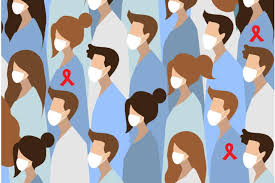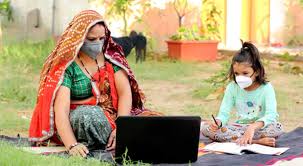Navigating Unprecedented Challenges
The COVID-19 pandemic has impacted societies globally, causing widespread changes in daily routines and economic, social, and health systems. Women have been affected in unique ways, with the pandemic highlighting the existing inequalities they face in various spheres of life. It is important to know the impact of COVID-19 on women, including their mental health, businesses, reproductive health, employment, physical activity, and the burden of unpaid work along with the History of Women’s day.

The Impact of the COVID-19 Pandemic on Women’s Mental Health
The pandemic has led to unprecedented stressors, including social isolation, uncertainty, and fear of infection, among others. Women have been disproportionately affected by mental health challenges, with a recent study revealing that women experienced higher levels of anxiety and depression than men during the pandemic. The increase in caregiving responsibilities, coupled with the loss of jobs and income, has further heightened stress levels for women.
The Impact of the COVID-19 Pandemic on Women-led Businesses
Women-led businesses have been significantly impacted by the pandemic, with many forced to shut down due to lockdown measures and reduced consumer spending. The pandemic has further highlighted the inequalities faced by women entrepreneurs, who have limited access to financial resources and business networks. Supporting women-led businesses is crucial to aid in the economic recovery from the pandemic.
The Impact of the COVID-19 Pandemic on Women’s Reproductive Health
The pandemic has also impacted women’s reproductive health, with disruptions in healthcare services and access to contraceptives. Women’s health centers have reduced services, leading to delays in critical procedures such as cancer screenings and family planning. Moreover, lockdown measures have increased the risk of domestic violence, leading to a rise in unintended pregnancies.
The Impact of the COVID-19 Crisis on Women’s Employment
The pandemic has resulted in significant job losses globally, with women bearing the brunt of the crisis. Women are overrepresented in sectors such as hospitality, tourism, and retail, which have been hardest hit by the pandemic. Moreover, the increase in caregiving responsibilities due to school closures and the illness of family members has made it challenging for women to balance work and family commitments.

The Impact of COVID-19 on Women’s Work
Working from home has become the new normal for many people during the pandemic, leading to a blurring of lines between work and personal life. Women have had to navigate new challenges, including increased caregiving responsibilities and lack of privacy, leading to burnout and exhaustion.
The Impact of COVID-19 on Women’s Health
The pandemic has highlighted the existing disparities in healthcare access, with women experiencing reduced access to healthcare services, including routine check-ups and preventative care. The pandemic has also led to delays in diagnosis and treatment for many women, resulting in adverse health outcomes.
The Impact of COVID-19 on Female Workforce
Women’s employment and workforce participation have been significantly impacted by the pandemic, with many women leaving the workforce due to caregiving responsibilities and job losses. The pandemic has further widened the gender gap, with women disproportionately affected by job losses and reduced working hours.
The Impact of the COVID-19 Pandemic on Women’s Physical Activity Behavior and Mental Well-being
The pandemic has led to reduced physical activity levels, with gym closures and restrictions on outdoor activities. Women have been affected more than men, with studies showing that women have experienced more significant decreases in physical activity levels during the pandemic. Moreover, reduced physical activity levels have been associated with increased mental health challenges, including anxiety and depression.
Gendering COVID-19: The Impact of the Pandemic on Women’s Burden of Unpaid Work in India
The pandemic has highlighted the existing gender inequalities in unpaid care work, with women bearing the brunt of caregiving responsibilities. The pandemic has exacerbated this burden, with women forced to take on additional caregiving responsibilities, including homeschooling and caring for sick family members. The lack of support structures and policies to address the unequal burden of unpaid care work has further highlighted the gender inequalities in India.
The Impact of the COVID-19 Pandemic on Women’s Reproductive Health
The pandemic has disrupted access to reproductive health services, including family planning, maternal healthcare, and safe abortion services. The restrictions on movement and healthcare services have led to delays in care, increasing the risk of maternal and neonatal mortality. Moreover, the pandemic has led to a rise in gender-based violence, including intimate partner violence and sexual assault, further impacting women’s reproductive health.
Final Thought
The COVID-19 pandemic has highlighted the existing inequalities faced by women globally, with the pandemic exacerbating their challenges. Women have been disproportionately affected by mental health challenges, job losses, reduced access to healthcare services, and increased caregiving responsibilities.
The pandemic has further widened the gender gap, with women bearing the brunt of the crisis. Addressing the impact of the pandemic on women requires a gender-sensitive approach. Women’s voices and experiences must be prioritized in the post-pandemic recovery efforts to build more inclusive and resilient societies.



0 Comments